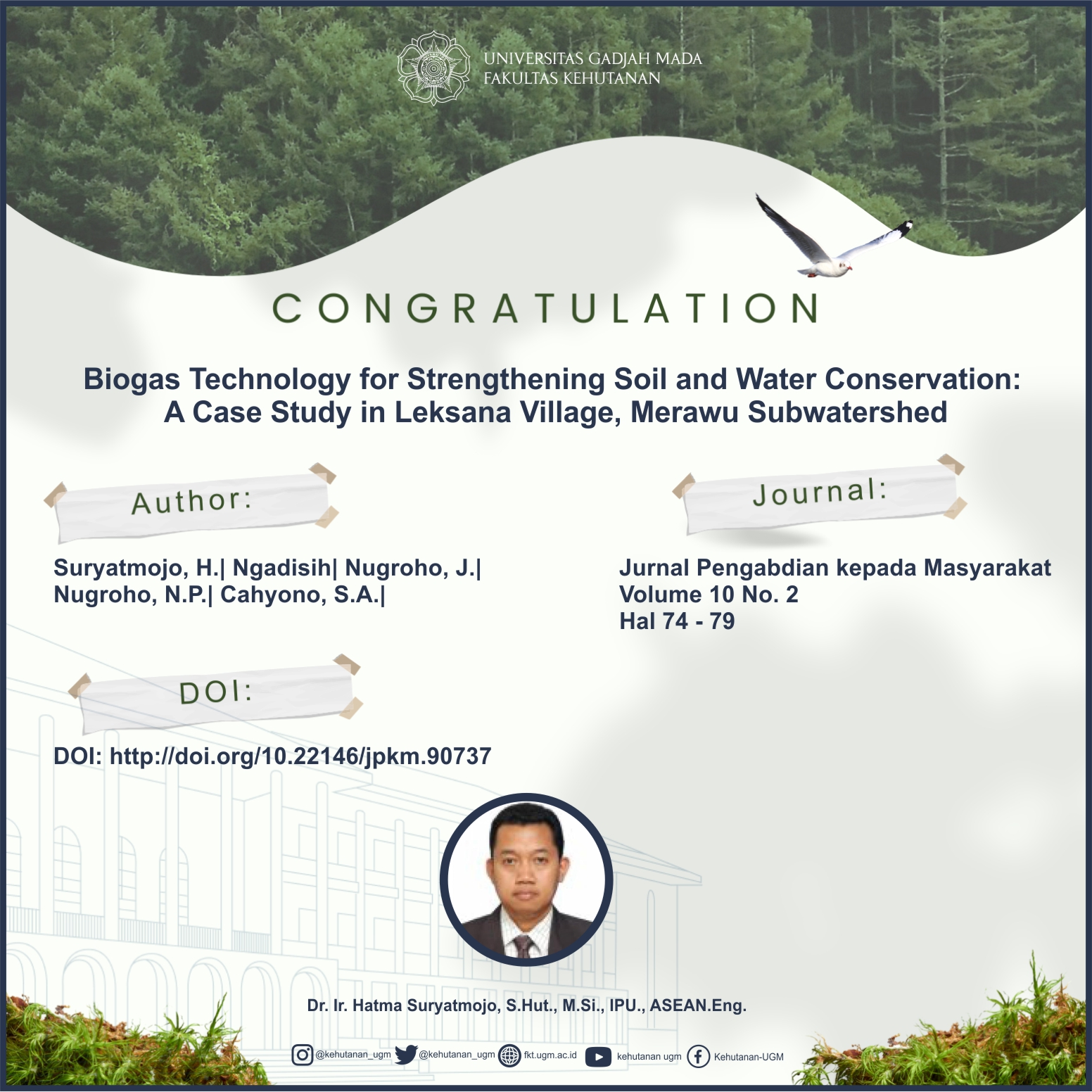
Abstract
Soil and water conservation is one of the keys to preserving natural resources. Livestock development can optimize the use of grass for soil and water conservation. However, livestock manure waste is a problem for the environment and health. This study aimed to explore the role of biogas technology in supporting the strengthening of soil and water conservation in the Merawu Subwatershed. Through a community empowerment approach, this research included educational programs, implementation of biogas technology, and evaluation of impacts on the environment and economic welfare of the community. After implementing the education program, the results showed a significant increase in public awareness related to environmental conservation. Biogas technology has been successfully installed in households as a pilot project and can operate the biogas system independently. It found positive environmental impacts, including improved soil quality and decreased organic waste load in local water sources. Increased economic welfare is also recorded through a decrease in costs for cooking fuel by 75%; moreover, there is a potential decrease in farming costs with organic fertilizers. The successful implementation of this biogas can be an inspiring model for households and other regions, demonstrating the potential of biogas technology as a holistic solution to soil and water conservation challenges. Although successful, the study identified several challenges, including the resilience of biogas systems to weather fluctuations and the program’s expansion to a broader region. Recommendations were given to expand community education, improve technical sustainability, and strengthen stakeholder cooperation. In conclusion, this research makes significant contributions to the literature and practices of community empowerment and natural resource conservation, affirming that biogas technology can be a motor of sustainable positive change at the local level.
SDGs
1. SDG 6: Clean Water and Sanitation
2. SDG 7: Affordable and Clean Energy
3. SDG 11: Sustainable Cities and Communities
4. SDG 12: Responsible Consumption and Production
5. SDG 13: Climate Action
3. SDG 15: Life on Land
Link Dokumen:
Download
